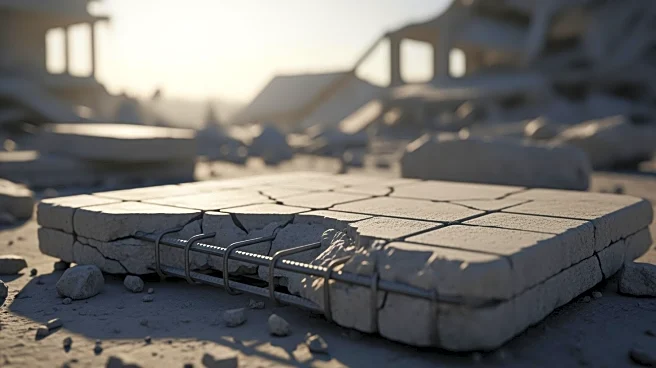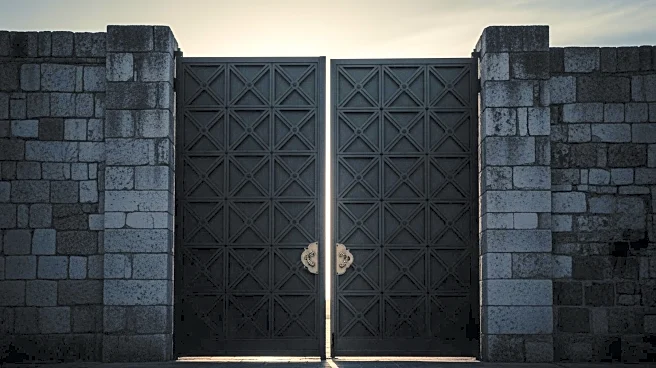What's Happening?
Israel has received two bodies from Gaza that Hamas claims are hostages, as part of a ceasefire agreement. The remains were transferred via the Red Cross and are pending formal identification. Prior to this, 10 of the 28 deceased hostages had been returned.
The delay in returning all remains has caused outrage in Israel, with Prime Minister Benjamin Netanyahu ordering the Rafah crossing to remain closed until further notice. The crossing is vital for Palestinians needing medical assistance and for those returning to Gaza. Hamas blames Israeli airstrikes for making the recovery of remains difficult, as many buildings have been reduced to rubble.
Why It's Important?
The return of hostages' remains is a critical component of the ceasefire agreement, impacting the humanitarian situation in Gaza and the political landscape in Israel. The closure of the Rafah crossing affects thousands of Palestinians, limiting access to essential services. The situation underscores the challenges in implementing ceasefire agreements and the complexities of the Israeli-Palestinian conflict. The international community, including the U.S., plays a significant role in mediating and monitoring the situation, with potential implications for regional stability and diplomatic relations.
What's Next?
The resolution of the hostages' remains issue is crucial for the continuation of the ceasefire and the reopening of the Rafah crossing. Israel's insistence on the return of all remains may prolong the closure, affecting humanitarian conditions in Gaza. International pressure and diplomatic efforts may influence negotiations and the implementation of the ceasefire agreement. The situation remains fluid, with potential for further developments and shifts in regional dynamics.
Beyond the Headlines
The hostages' remains issue highlights the ethical and legal challenges in conflict resolution and the humanitarian impact on affected populations. The situation may lead to long-term shifts in international policy and regional alliances, with implications for the broader Middle East conflict.















